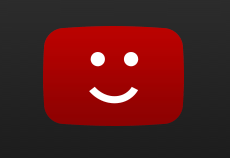 A class action lawsuit filed by Maria Schneider against YouTube more than two years ago has support from artists who believe big tech should do better.
A class action lawsuit filed by Maria Schneider against YouTube more than two years ago has support from artists who believe big tech should do better.
While that opinion is widespread in the music industry, no musical artists of any description joined Schneider in the class action, despite the plaintiffs oozing confidence in their allegations.
Mass copyright infringement, failure to suspend repeat infringers, and breaches of the DMCA are all featured in a case that seems to have one key goal – Content ID access for all artists no matter how popular, so they can defend their work from pirates on YouTube.
YouTube hasn’t given an inch and believes all of the claims in the class action are without merit. At least one of the members of the putative class acted fraudulently, YouTube claims, and it can easily dismiss every other allegation. On Friday, YouTube informed the court that it will move for summary judgment in October. If the claims in its motion are deemed credible, a YouTube win is almost inevitable.
It’s Not Infringement if You Have Permission
According to YouTube, Maria Schneider’s allegations of mass copyright infringement plus violations of the DMCA due to YouTube’s removal of Copyright Management Information (CMI) simply cannot succeed.
In 2008, Schneider reportedly gave her publisher, Modern Works Music Publishing (MWP), the exclusive right to license her compositions. In turn, MWP granted YouTube/Google a blanket license to use all MWP-controlled works, which included Schneider’s entire back catalog. Furthermore, YouTube says it holds separate licenses to Schneider’s works, relating to any content uploaded by the musician or her agents to YouTube.
Schneider claims the MWP license is invalid, YouTube says, since her publisher didn’t get permission from her to license anything to YouTube.
“Even assuming that were true, it makes no difference because Schneider’s consent was not a condition precedent to MWP’s right to license her works. The license is valid and dispositive. And as to the other license, Schneider has said nothing at all,” YouTube’s motion reads.
Part of Schneider’s claims relate to YouTube’s removal of CMI from uploaded tracks but YouTube says the musician refuses to identify the tracks where this supposedly happened. Nevertheless, YouTube says Schneider’s claim still fails because the blanket rights license obtained from her publisher granted the company permission to reformat videos containing her works. Schneider can’t prove intent either (17 U.S.C. § 1202(b)), YouTube says.
Schneider Didn’t Move Quickly Enough
Do people ever read the Terms of Service on sites like YouTube? Sometimes perhaps, but if anyone is considering legal action, giving them the once over first can reveal some interesting restrictions.
“When Schneider created her YouTube account and uploaded videos to YouTube, she agreed to YouTube’s TOS, including its provision that any claim relating to YouTube’s services be brought within one year of accrual,” YouTube says.
“Beyond that, the governing statute of limitations requires her claims be brought within three years of accrual (17 U.S.C. § 507(b)) — that is, when a plaintiff has actual or constructive knowledge of the claims.
“Schneider admits to having actual knowledge of dozens of her infringement claims years before she sued, and discovery shows she had constructive knowledge of even more. She also had actual knowledge of YouTube’s supposed § 1202 violations [CMI] more than three years before she sued.”
Supporting Evidence
According to YouTube, Schneider agreed to its Terms of Service (TOS) on several occasions, including when she created the ‘Maria Schneider Official Page” in 2012.
When users agree to the TOS, they give YouTube “extensive rights” to any content they upload, including a license for YouTube and YouTube users to use the content across the YouTube service. Any claims relating to the service must be brought within a year.
Schneider’s copyright infringement claims against YouTube relate to 78 works. 76 of those works are musical compositions but according to YouTube, Schneider’s copyrights only cover the musical compositions (i.e sheet music), not sound recordings. In respect of the two remaining works where she does own rights to the sound recordings, no infringement allegations are within the statute of limitations period.
One of Schneider’s central claims, that she was denied access to Content ID, is incorrect according to YouTube. MWP, which granted YouTube a blanket license covering her back catalog, used Content ID on Schneider’s behalf. When ‘infringing’ content was monetized, Schneider received payments from MWP.
“Schneider’s infringement claims fail on multiple grounds. The Works-in-Suit were licensed through MWP and the Terms of Service,” YouTube notes in summary.
“Schneider’s CMI claim fails because she cannot make out a prima facie case and because any removal of CMI by YouTube was authorized. And both her CMI claim and many of her infringement claims are also time-barred. Together, these overlapping grounds dispose of all of Schneider’s claims against YouTube.”
YouTube’s motion for summary judgment against Schneider can be found here (pdf)





